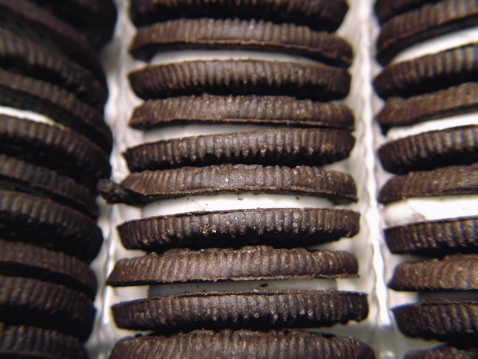Oreo cookies are as addictive as morphine and cocaine? No surprise there, Dr. Pamela Peeke, senior science advisor to Elements Behavioral Health, tells ABC News on Nightline.
Dr. Peeke, a physician, nutrition and fitness expert, scientist and “New York Times” best-selling author, says the new study by researchers at Connecticut College “adds yet another piece of the puzzle to mounting evidence that we’ve been accumulating over the last 10 years showing a very strong relationship between certain foods and addiction.”
Eating Oreo cookies activates more neurons in the brain’s “pleasure center” than exposure to drugs of abuse, Joseph Schroeder, associate professor of psychology and director of the behavioral neuroscience program, and his students found during experiments on rats. The Connecticut College study was designed to shed light on the potential addictiveness of high-fat/ high-sugar foods.
“We call them the hyper-palatables, the sugary, fatty salty foods that can be just as addictive as cocaine and other drugs of addiction,” said Dr. Peeke, author of “The Hunger Fix.” Peeke argued that for some people, food can be as addictive as cocaine, with some experiencing cravings, binging and withdrawal. “The organic changes that happen in the reward system are identical whether it’s drugs, alcohol or food. You’re secreting lots of that wonderful pleasure-reward brain chemical called dopamine and it’s giving you that fantastic feeling of, ‘Wow, this is wonderful.’ “
According to the Centers for Disease Control, more than one-third of American adults are either overweight or obese and obesity kills more Americans every year than AIDS, all cancers and all accidents combined.
In “The Hunger Fix,” Dr. Peeke offers a prescription to retrain the brains of food addicts. She calls it the three “M’s”: Mind, Mouth, Muscle. Through meditation, in which people “power up their brains” to “to be able to stay vigilant, to say no, and to be able to rein in impulses,” by providing mouth pleasure with a chocolate-cherry protein smoothie instead of ice cream, and a commitment to regular exercise to stave off cravings and reward the brain with endorphins rather than sugar, food addicts can take back their lives.
“This is not a New Age moment,” she said. “This is hardcore neuroscience,” Dr. Peeke said.
The Nightline piece tells the story of Tara Costa, a former contest on “Biggest Loser,” who calls herself a recovering food addict. After losing 155 pounds during the show’s taping, Costa started to put the weight back on. Costa is again battling her addiction, following the advice of Dr. Peeke.
“The science has helped people feel relieved that [their inability to control their eating] wasn’t all their fault,” Dr. Peeke said. “But what they must now do is take action to get this stuff out of their life.”
Clearly not everyone is addicted to Oreos, Peeke said, but a lot of people “struggling with their weight right now who find themselves very attracted to these kinds of food and also out of control around these kinds of foods. For those people, we need to have programs to help them. For everyone else, have your Oreo.”
See the Nightline broadcast here.


